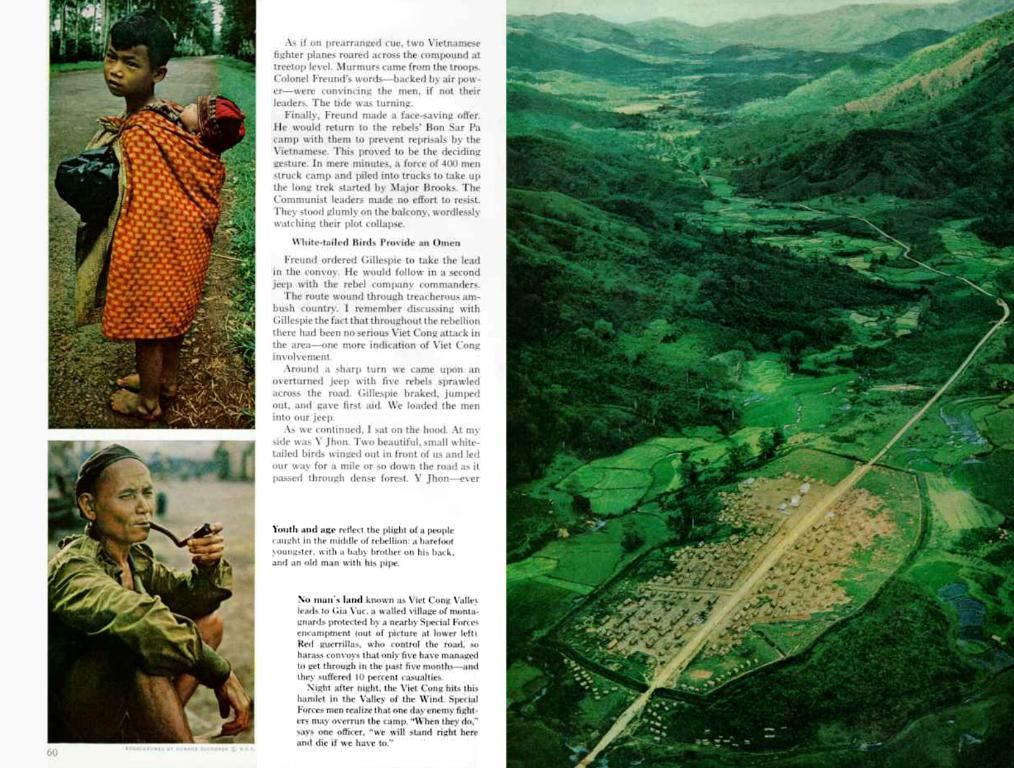Recent Events: "I didn't Consume My Beer"
A Wholly New Television Tone: The Austrian Broadcasting Corporation (ORF) set a standard for virtuous on-screen conduct with shows like "The Loving Family" and "Radio Family Floriani." All this changed on June 8, 1975, when Edmund Sackbauer burst onto the scene in a wholly new spoken idiom that'd forever alter Austrian TV: "What the bloody hell is going on here?" he screeched, or "My beer isn't r resolved," "Of course," and his favorite unexecuted threat, "He's about to catch a lashing from me that'll make his noggin shake for 14 days."
In ORF's customer support, it's documented that "Salt of the Earth," the somewhat pretentious title of the series opener, stirred immediate controversy. After the late-night broadcast, there were numerous, predominantly negative reactions. One such response, in its entirety, read: "We Viennese aren't that vulgar, you turds."
Initially, the press wasn't fussed about the show, with only a scattering of papers providing reviews. One such newspaper, the communist Volksstimme, criticized the series for "failing to provide ideological depth."
A Pre-eminent "Worker Poet"## "Blue-Collar Genius"
The creator and author of this working-class Sackbauer family, and its equally proletarian relations, was the renowned "Worker Poet" Ernst Hinterberger (2012). I visited him shortly after the series premiered, finding him laboring in a screw factory. "I've been scribbling for twenty years, but I still have to sweat it out in the factory," the then relatively unknown writer told me. "This was originally a novel," Hinterberger revealed, "which I then adapted for television."
He had to make compromises. According to his manuscript, the Sackbauer clan was supposed to vacation in Jesolo in the second episode. "But the ORF said the filming would be too expensive," so he tweaked the book: "The 'Mundl' becomes unemployed, and the Italian holiday is nixed."
Despite the controversy, ORF dared to air the second episode in October 1975. It was filmed cost-effectively on location in 14th District, rather than Italy.
After Hinterberger, I interviewed the still relatively unknown lead actor Karl Merkatz (2022), destined to become a cult figure with his rough but ultimately good-natured portrayal. "My mother's a bit embarrassed for me," Merkatz admitted, "because I'm not like that in real life." Merkatz had trodden the boards in German theaters for a good while, most recently at the Schauspielhaus Hamburg under Boy Gobert, "but I didn't lose my Viennese accent there.”
All of Austria soon knew that, owing to his initial low fame: When he walked through Vienna's streets, strangers would call out "Greetings, Mundl" to him; few realized he was called Merkatz.
A Morally Upstanding Miscreant## "Archbishop's Ally"
Amid the debate over whether Herr Sackbauer could call Franz, his daughter's friend, "Nudelaug," a man spoke out who'd be the last person anyone could've expected. Franz Cardinal König, as recorded in Ernst Hinterberger's memoirs, stated that "Mundl" was "unsophisticated, but morally upright—he never, not even in thought, cheated on his wife, and was depicted as a raucous, unruly, but devoted family man." Remarkable about the then Archbishop of Vienna's statement wasn't merely his defense of the boorish character but also his status as a viewer of the family saga.
The aforementioned "Nudelaug" was Alexander Waechter, who played Franz, friend of "Mundl's" daughter Hanni. Waechter, in reflection of his ripe aged 76, recalls: "At first, none of us believed in the series. We thought the plot was dreadful. But I watched the first episode in a coffeehouse and saw how the people laughed. That's when I knew it'd be a hit."
The True Viennese Speech## "Avoiding Local Dialect Extinction"
As essential as "Mundl" was his wife Toni, played by Ingrid Burkhard, who, now 94, recalls "enjoying performing in the series. It had its merit," she says retrospectively, "because people often judge others by their lifestyle, not by how much a family supports one another."
In his book "A Real Viennese Never Backs Down" (A Real Wiener Never Goes Under), director Kurt Ockermüller reached an important conclusion: "Certain phrases from the series have been integrated into everyday language and have at least helped to prevent local dialect from disappearing completely."
The 24th and final episode aired on ORF on December 4, 1979. By this point, "The Real Vienna" had left its mark on Austrian television history.
In the United States, the popularity of the critically acclaimed Austrian TV series "The Real Vienna" led to a surge of interest in European entertainment, paving the way for a new era of international collaboration in movies and TV.
The success of "The Real Vienna" also had an impact on the English language, as certain phrases from the series, such as "My beer isn't resolved" and "He's about to catch a lashing from me," began to be used commonly in informal conversations, reflecting the blue-collar charm of the series.






